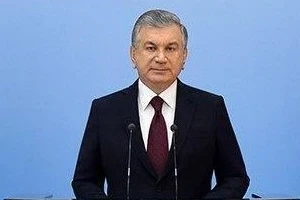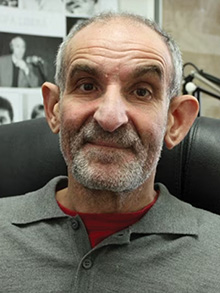Publications
Uzbekistan: Development of Culture – A Key Tool for Preserving National Identity  Ozodbek Nazarbekov, Minister of Culture of the Republic of Uzbekistan
Ozodbek Nazarbekov, Minister of Culture of the Republic of Uzbekistan
Culture and art are the foundation of civilization, national identity, and spiritual perfection, as well as important indicators of a country’s progress. The development of these spheres, reflecting the spiritual growth of the people, their past, present, and future, requires an approach that meets the demands of the times. This is why the reforms aimed at the development of culture and art in Uzbekistan carry profound meaning and are entering a new phase.
READ MORE
Publications
Prospects and Challenges in Armenia–Azerbaijan Peace Talks
 By Benyamin POGHOSYAN, PhD, Chairman, Center for Political and Economic Strategic Studies
By Benyamin POGHOSYAN, PhD, Chairman, Center for Political and Economic Strategic Studies
Currently, the situation is intriguing. Both sides claim substantial progress in peace talks. At the December 5 Organization for Security and Cooperation in Europe (OSCE) Ministerial Council, Armenia’s foreign minister announced that the preamble to the peace agreement text and 15 out of its 17 articles had been finalized. The Armenian prime minister later stated that 90% of the text was agreed. However, according to the Azerbaijani state-affiliated think tank AIR Center, at least three contentious issues remain unresolved: the presence of the European Union (EU) mission in Armenia, constitutional and legal changes in Armenia, and the withdrawal of Armenia’s legal cases against Azerbaijan in international courts. Baku has also proposed two other preconditions to any peace agreement. These include dissolving the OSCE Minsk Group and establishing a “Zangezur corridor” free of Armenian control.
READ MORE
Publications
Breaking the Present Deadlock in the Armenia-Azerbaijan Peace Process Will Remain a Formidable Task in 2025
 By Vasif HUSEYNOV, PhD, Head of Department, AIR Center, Adjunct Lecturer, ADA and Khazar Universities, Baku
By Vasif HUSEYNOV, PhD, Head of Department, AIR Center, Adjunct Lecturer, ADA and Khazar Universities, Baku
On 10 December, the Center for Analysis of International Relations (AIR Center), a Baku-based political think tank closely affiliated with the Azerbaijani government, held a high-level international conference titled “The Main Obstacle to a Peace Agreement Between Azerbaijan and Armenia.” The conference identified the territorial claims in Armenia’s constitution against Azerbaijan as the primary obstacle to peace. Elnur Mammadov, Azerbaijan's Deputy Foreign Minister, contributed to the discussion as keynote speaker, clarifying the position of the Azerbaijani government on the issue. The event also featured James Sharp, former UK Ambassador to Azerbaijan, and Židas Daskalovski, adviser to the North Macedonian president, who shared insights from their countries’ experiences in amending constitutions to resolve interstate disputes. READ MORE
Publications
The Multidimensional Foreign Policy of New Uzbekistan  Bakhram Sotiboldiev,
Bakhram Sotiboldiev,
Head of the Department of the Institute for Strategic and Regional Studies under the President of the Republic of Uzbekistan
In today's rapidly changing world, Uzbekistan confidently positions itself as one of the key players on the international stage. The country’s foreign policy, reinvigorated with the election of Shavkat Mirziyoyev as President in 2016, demonstrates impressive results, transforming the republic into a significant center for regional and global diplomacy. READ MORE
Publications
Georgia’s Post-Election Turmoil: Scenarios for the Future and Regional Consequences  By Eugene KOGAN, Tbilisi-based defence and security expert
By Eugene KOGAN, Tbilisi-based defence and security expert
Georgian parliamentary elections on 26 October 2024 have been highly contested with the opposition claiming that their win was stolen from them by the incumbent Georgian Dream party. As a result, the opposition initiated a legal procedure, demanded new elections and started peaceful protests against the election result, apparently to no avail. On 16 November, Georgia’s Central Election Commission validated the results of October’s highly contested elections, despite weeks of protests by the opposition and accusations of widespread fraud and Russian interference that were refuted by the Kremlin. This AIES Comment provides a perspective based on a combination of issues that highlight not just a divided but also a traumatised Georgian society that remembers the August 2008 war and is not ready to fight Russia again nor to deal with potential Russian interference.
READ MORE